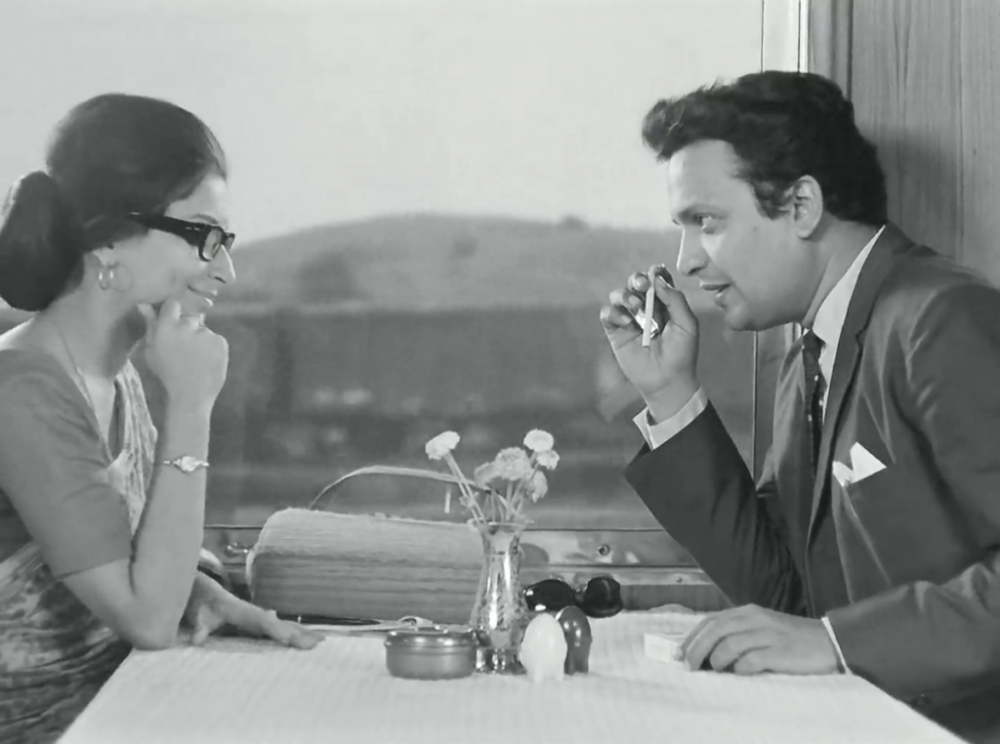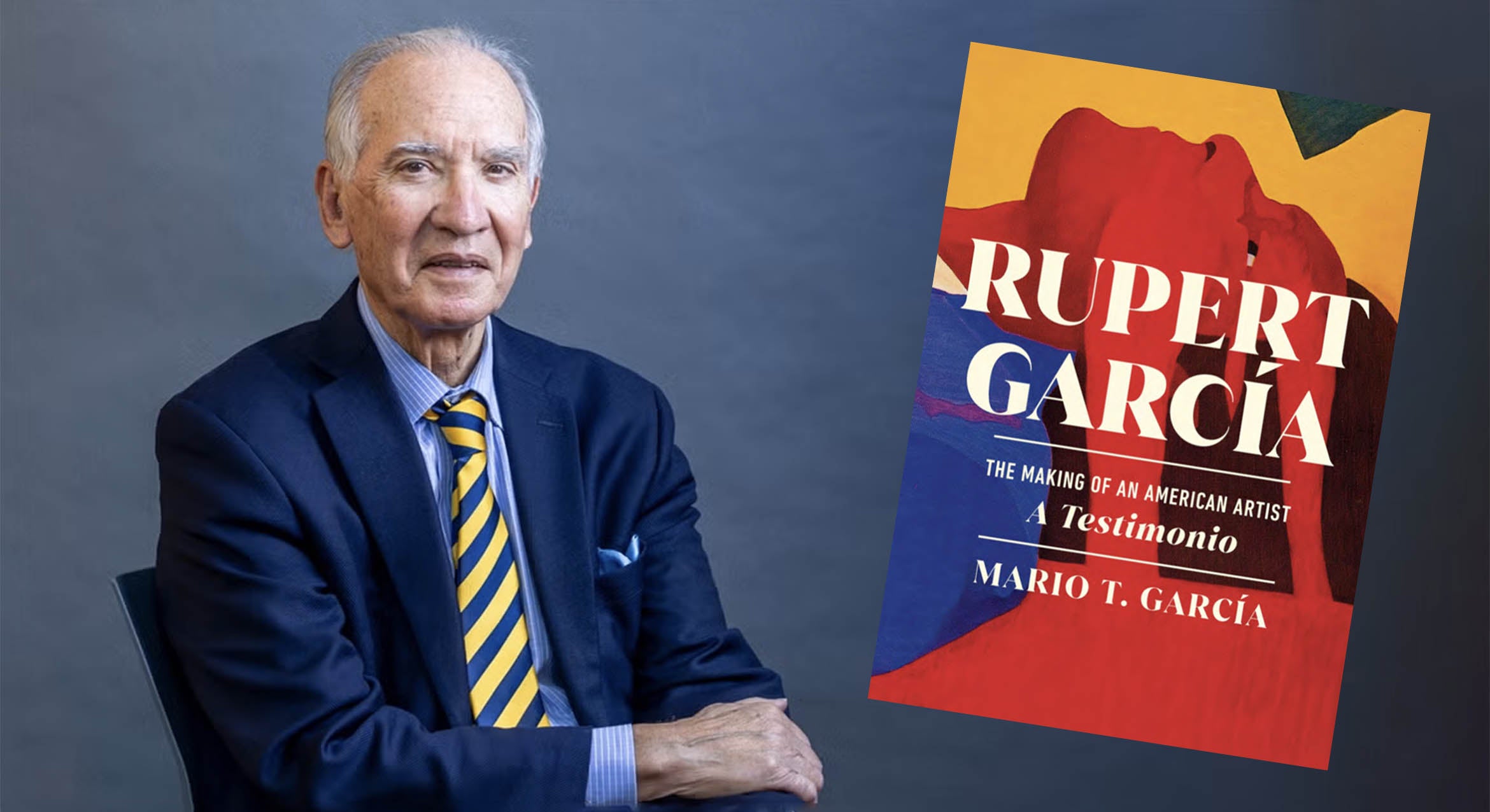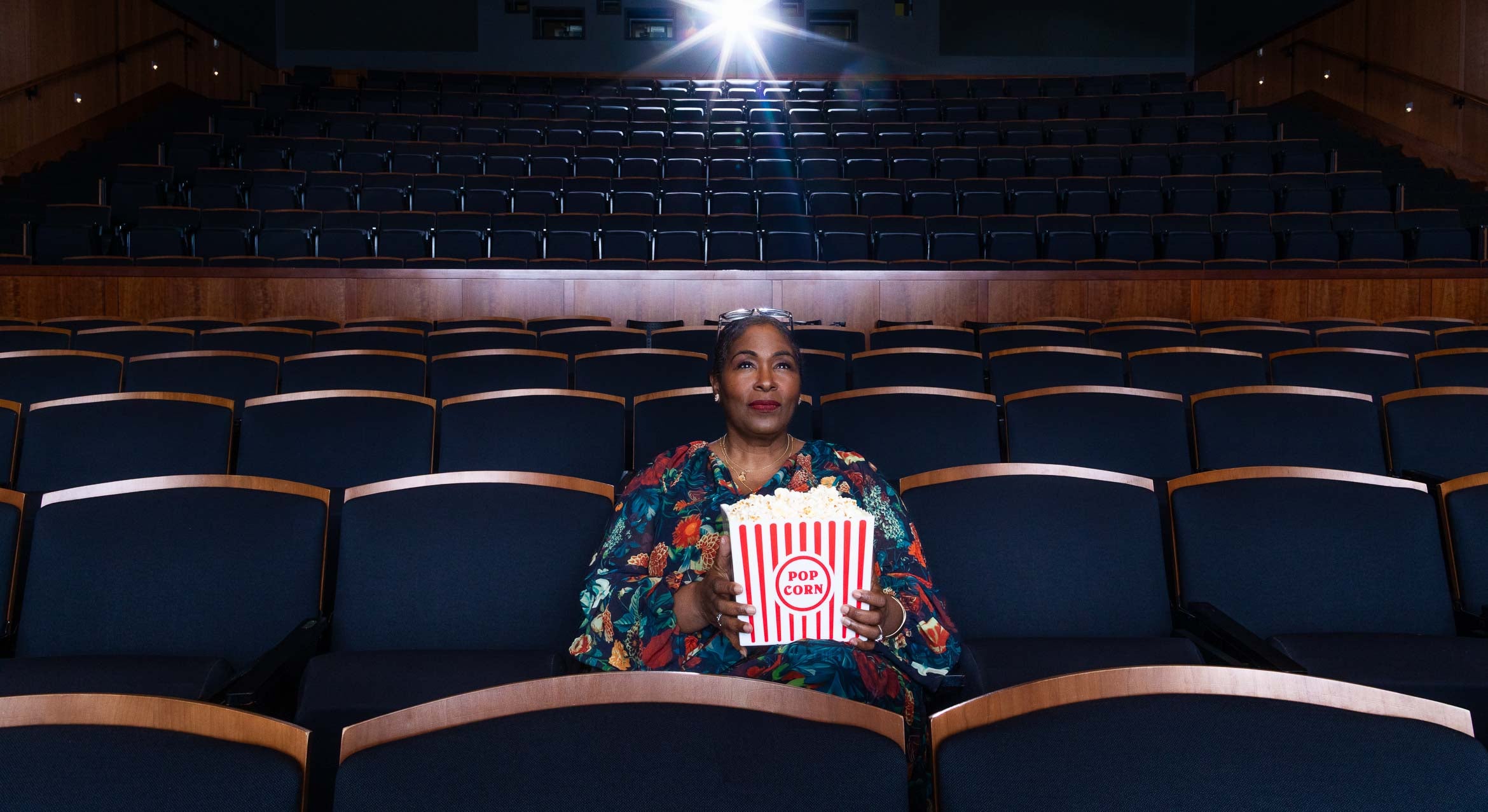
A Ray of Light
Haven’t been to the movies in a while? You're not alone — but a new free film series and accompanying conference hopes to reverse the trend.
The UC Santa Barbara Film and Media Studies Department and the Carsey-Wolf Center have joined forces in pursuit of two goals: Belatedly celebrate the centenary of a cinematic giant, Indian director Satyajit Ray; and find a way to entice pandemic-wary patrons back into the Pollock Theater.
If all goes as hoped, these twin efforts will be not only compatible, but mutually reinforcing.
On Oct. 11, the Carsey-Wolf Center kicks off a new, year-long series entitled Big Screen, an attempt to coax movie lovers out of their living rooms and see a film on, well, a big screen. The first four films in the series were written and directed by Ray (1921–22), the first Indian filmmaker to receive widespread international acclaim.
While one of the films, “The Hero” (screening Nov. 9), is relatively well-known to art cinema enthusiasts, the other three are seldom screened in the West, and unavailable on streaming services. Patrice Petro, Dick Wolf Director of the Carsey-Wolf Center, hopes the rare chance to see little-known works by a revered filmmaker will help nudge cinephiles away from streaming services and get them back into the habit of going to the cinema.
“We’ve become very used to staying home,” she lamented.
But the films — “The Adventures of Goopy and Bagha” on Oct. 11, “The Kingdom of Diamonds” on Oct. 12, and “The Golden Fortress” on Nov. 7 — are not simply novelties. Film and media studies professor Bhaskar Sarkar, who is organizing a three-day conference on Ray’s work with Bishnupriya Ghosh, professor of English and of global studies, argues that experiencing them is vital to fully grasping the range and power of the filmmaker’s work.
The conference, “Satyajit Ray and the Sense of Wonder,” will feature scholars from India, the U.K., Germany and the U.S. It will take place Oct. 13, 14 and 15.
The term “wonder” is not particularly associated with Ray, whose Western art-house hits of the 1950s, ‘60s and ‘70s were artfully constructed, socially conscious dramas such as the well-known Apu Trilogy. Such work earned him an honorary lifetime Academy Award, and the praise of fellow filmmakers Akira Kurosawa and Martin Scorsese.
“As a filmmaker, Ray is often talked about as a rationalist, a man who believes in modern values and institutions — which he does,” Sarkar said. “But he also was very interested in paranormal phenomena, in speculative approaches to reality. He was interested in things that are not visible but you can sense them, like the presence of a ghost.
“‘The Adventures of Goopy and Bagha’ features a ghost dance sequence of seven minutes that is some of the most important work Ray has ever done,” Sarkar continued. “Shooting on a limited budget, he had to be madly creative. At one point, rather than shooting the dancers directly, he shoots their reflections on the water, so the figures appear on screen as wavering, otherworldly beings. That has an unbelievable impact.”
To this day, Ray remains the best-selling author of young-adult fiction in the Bengali language. His diverse output included detective stories, science fiction/fantasy and comedies aimed at children. The first three films in the Big Screen series, all based on his grandfather’s stories, fall into one or more of those categories — although, as Sarkar noted, “the first two are also brilliant political allegories for what was going on all over South Asia in the 1960s and ‘70s.”
In addition, Ray was a gifted illustrator, a superb composer who wrote most of his own scores, and a best-selling author. The conference’s theme of wonder is, for Sarkar, “one way to cut across various spheres of creativity — cinema, music, graphic arts and writing. Wonder is found throughout his stuff.”
Sarkar can arguably appreciate this fact better than many Western film scholars, thanks to his Bengali background. Born and raised in Kolkata, he moved to the U.S. to study economics, but switched over to film studies while in graduate school at University of Southern California. His first exposure to Ray’s work was through his illustrations for children’s books, and then through reading his still-popular young-adult novels. He vividly remembers seeing “The Golden Fortress” at age 9. Decades later, he still considers it a “brilliant” film. “He uses a desert landscape to great effect,” Sarkar commented.
Beyond that sort of evocative imagery, what makes Ray a filmmaker who is still admired and studied a century after his birth? “He produces universal emotions within a specifically Bengali context, and without sentimentality,” Sarkar said. “He combines various influences and makes them his own, which is what makes him a singular artist. There’s not quite anyone like him.
“I don’t know too many directors who have captured such incredible interactions between people. Perhaps this is why so many critics categorize Ray as a humanist. The way he stages scenes, the way he conjures the shifting relationships between people’s bodies. The density of looks exchanged and held between his characters — it’s riveting. It pulls viewers straight into the action without excessive sentimentality or psychologization.”
Petro argues that this sort of visual sophistication is best appreciated on a big screen, which is one reason she is excited to be starting the new series with these works. “Size matters. Scale matters,” she said.
“Later, we’ll do some classic Hollywood films, including ‘Now Voyager’ with Bette Davis in the winter. In the spring, we want to focus on slapstick comedy, from Buster Keaton to more contemporary works.”
Petro stressed the screenings will be in a safe environment. “Although we behave now like the pandemic is mostly over, it isn’t. We’re still asking patrons to wear masks. We have older patrons, and we want them to feel comfortable. The Pollock Theater is well-ventilated, and our typical audience is 150 to 160. It seats 296, so you won’t be packed in there. I hope that will make people feel more comfortable going to the movies.”
Besides that, the price is right: Reservations are recommended, but admission is free.



